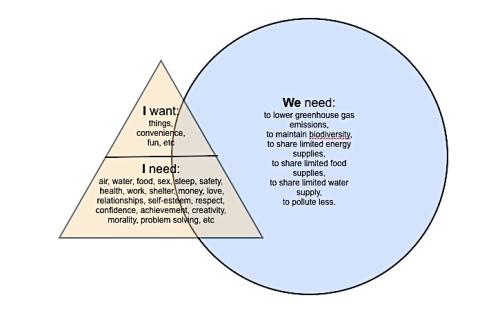Met with KoAnn, from Sustainable Life Media for lunch, at local deli. I asked lady at the checkout counter, “Do you have compostable spoons?”. I was met with same blank stare I have encountered before in similar situations. Mainstream America does not know about compostable plastics, and even less so, sustainability. Not that the lady was not open to learning. She seemed fascinated when I explained compostable plastics, and why it mattered. She would ask, she said.
Back home, in preparation for this post, I did some more research on the topic. Googled, compostable plastics, Fake Plastic Fish. And found post from my friend Beth Terry, ‘Just because we can, doesn’t mean we should‘. Of course, I can always count on Beth to set me straight. No easy way out here. The way to go, really, is good old fashioned metal spoons. Only energy required is from dish washing. Most likely the lesser of all evils.
Next time, I go to the deli, I will ask the lady about metal spoons instead.




